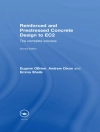In the developing countries, pollution through solid waste, sludge from water and wastewater treatment plants and pollution of natural water resources have become one of the grave issues. The root cause is population explosion, industrialization, urbanization and other anthropogenic activities. The increase rate of solid waste has become a major challenge for sustainable development of the environment. Poor management of solid waste and sludge from water and wastewater treatment plants may be the cause of health hazards and environmental problems. The book presents new methods and technologies to combat the aforementioned problems and focuses on the importance of using the recycled products. The technologies related to waste and sludge treatment are economical, eco-friendly and bring economic returns, and can be applied to most of the developing countries where waste treatment technologies, viz. composting, anaerobic digestion, recycling of plastic and agricultural waste in construction can be used. The aim of the book is to support everyone who is involved in academics, teaching, research related to solid waste management and water and wastewater treatment study in the leading academic and research organizations globally. This book will be of prodigious value to upcoming researchers, scholars, scientists and professionals in Environmental Science and Engineering fields, and global and local authorities and policy makers responsible for the management of solid wastes and sludge. Globally, universities can develop new prospectuses on sustainable and eco-friendly waste and sludge management, which are relating to the book’s theme. This book can also be of great source for designing and operation of waste reuse and recycling programmes.
قائمة المحتويات
1. Utilisation of Recycled Slaughterhouse Wastes for Vegetable Cultivation in Rural India.- 2. Operation and Maintenance of Wash Infrastructure in Residential Schools in Tribal Belt of Maharashtra: A Case Study.- 3. Metal Resistant Bacteria in Animal Manure Induces Bacterial Resistance to Antibiotics: Their Co-occurrence in Compost, Soil and Water.- 4. Artificial Neural Network Model for Prediction of Methane Fraction in Landfill Gas from Pretreated Waste in Bioreactor Landfills.- 5. Effect of Gasification Zone Length on the Downdraft Gasifier Performance for High Ash Biomass.- 6. Utilisation of Natural Waste in Freeze-Thaw Affected Soil: A Comparative Analysis.- 7. Economic and Ecological Feasibility of Marble Powder in Cement Mortar.- 8. Use of Gas Turbine Operated by Municipal Solid Waste to Obtain Power and Cooling Assisted by Vapour Absorption Refrigeration System.- 9. Experimental Study on Recycled Polyethylene Terephthalate (PET) Bottle Fibre Reinforced Concrete.- 10. Estimationof Demolition Waste Using Waste Generation Rate and Logistic Flows in Surat, India.- 11. Identification of Potential Neighbourhood Constraints of Demolition Process: A Case Study.- 12. Sustainability of Natural Aggregates by Utilising CDW in Concrete.- 13. Experimental Study on Incorporation of Plastic Wastes as a Binding Material in Pervious Pavers.- 14. Biogas Development in India: A Sustainable Energy for Future.- 15. Study on the Effect of Load Resting Time on Recycled Brick Aggregate Cement Concrete.- 16. Energy Densification of Juice Waste Using Hydrothermal Carbonisation.- 17. Terracotta Membrane-based Microbial Fuel Cell with Algal Biocathode: A Low-Cost Alternative to Dairy Wastewater Treatment Coupled Electricity and Biomass Production.- 18. Upcycling Textile Waste Towards Green Nanocomposites.- 19. Reduction of Significant Aspects and Enhancement of Non-Significant Aspects for Hazardous Wastes in a Medical Electronics Manufacturing Firm.- 20. The Potential of Biogas Production from Water Hyacinth by Using Floating Drum Biogas Reactor.- 21. Influence of Initial p H on Bioleaching of Selected Metals from e-Waste Using Aspergillus niger.- 22. Column Leaching of Metals from PCB of End-of-Life Mobile Phone Using DTPA Under Oxidising Condition.- 23. Assessment of Sand Size on ECC Containing Waste Materials.- 24. Effect of Operating Parameters on Leachate Quantity and Quality Generated During Hydrolysis of Kitchen Waste.- 25. Comparative Performance Evaluation of Toxicity Assessment Tests on Waste Li-Ion Laptop Batteries.- 26. Recycling Construction and Demolition Waste: Potential Applications and the Indian Scenario.- 27. Biochemical Methane Potential and Kinetics of Parthenium hysterophorous with Different Food to Microorganisms (F/M) Ratios.- 28. Removal of Lead and Copper by Using Bentonite as an Adsorbent.- 29. Impact of Precipitation on Biodegradation of Fresh Municipal Solid Waste in Anaerobic Simulated Reactor.- 30. Scope of Renewable Energy Intervention for Energy Sufficiency in Nagaland.- Index.
عن المؤلف
Ajay Kalamdhad, Professor at the Department of Civil Engineering, Indian Institute of Technology Guwahati, has been conducting research in several projects funded by various agencies along with his team in the specialized areas of solid waste management by microbial and vermicomposting; Aerobic and anaerobic digestion of kitchen waste and industrial sludge for biogas production. He is also supervising 18 Ph D scholars and over 10 Ph D dissertations have been completed under his supervision.
Professor Kalamdhad also serves as an editorial board member/reviewer for several national/international journals of repute and has contributed over 150 papers in many of these highly respected journals. He has published six book chapters and five international books and is a member of several National and International Waste Management Associations including International Solid Waste Association, National Solid Waste Association of India, Indian Water Works Association, Biological & Environmental Engineering Society and Asia-Pacific Chemical.












